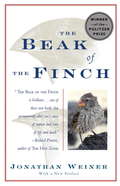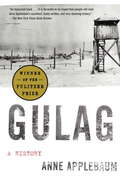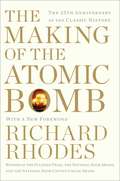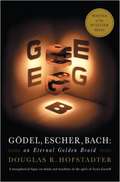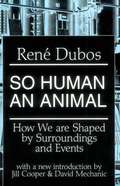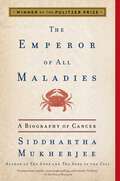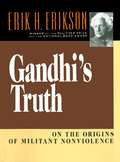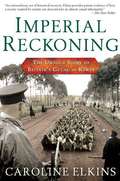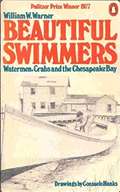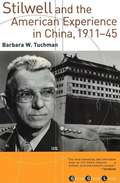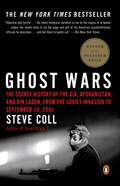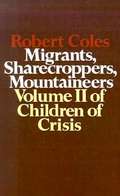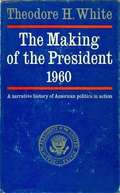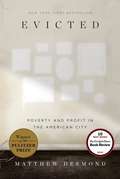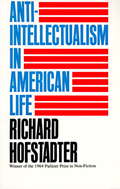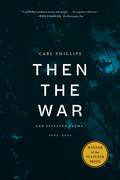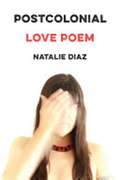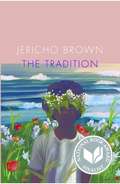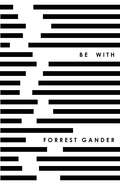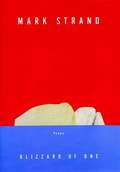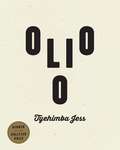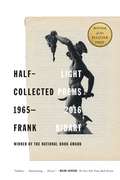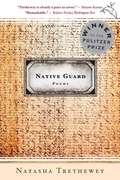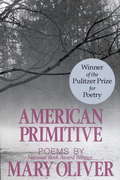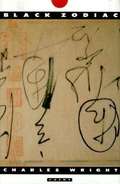Special Collections
Pulitzer Prize Award Winners
Description: Bookshare is pleased to offer the following titles, winners of the Pulitzer Prize Award. Note: Some drama winners are available and are listed under Fiction awards. #award
- Table View
- List View
The Beak of the Finch
by Jonathan WeinerPULITZER PRIZE WINNER • A dramatic story of groundbreaking scientific research of Darwin's discovery of evolution that "spark[s] not just the intellect, but the imagination" (Washington Post Book World). &“Admirable and much-needed.... Weiner&’s triumph is to reveal how evolution and science work, and to let them speak clearly for themselves.&”—The New York Times Book ReviewOn a desert island in the heart of the Galapagos archipelago, where Darwin received his first inklings of the theory of evolution, two scientists, Peter and Rosemary Grant, have spent twenty years proving that Darwin did not know the strength of his own theory. For among the finches of Daphne Major, natural selection is neither rare nor slow: it is taking place by the hour, and we can watch.In this remarkable story, Jonathan Weiner follows these scientists as they watch Darwin's finches and come up with a new understanding of life itself. The Beak of the Finch is an elegantly written and compelling masterpiece of theory and explication in the tradition of Stephen Jay Gould.
Gulag
by Anne ApplebaumThe Gulag--the vast array of Soviet concentration camps--was a system of repression and punishment whose rationalized evil and institutionalized inhumanity were rivaled only by the Holocaust. The Gulag entered the world's historical consciousness in 1972, with the publication of Alexander Solzhenitsyn's epic oral history of the Soviet camps, The Gulag Archipelago. Since the collapse of the Soviet Union, dozens of memoirs and new studies covering aspects of that system have been published in Russia and the West. Using these new resources as well as her own original historical research, Anne Applebaum has now undertaken, for the first time, a fully documented history of the Soviet camp system, from its origins in the Russian Revolution to its collapse in the era of glasnost. It is an epic feat of investigation and moral reckoning that places the Gulag where it belongs: at the center of our understanding of the troubled history of the twentieth century. Anne Applebaum first lays out the chronological history of the camps and the logic behind their creation, enlargement, and maintenance. The Gulag was first put in place in 1918 after the Russian Revolution. In 1929, Stalin personally decided to expand the camp system, both to use forced labor to accelerate Soviet industrialization and to exploit the natural resources of the country's barely habitable far northern regions. By the end of the 1930s, labor camps could be found in all twelve of the Soviet Union's time zones. The system continued to expand throughout the war years, reaching its height only in the early 1950s. From 1929 until the death of Stalin in 1953, some 18 million people passed through this massive system. Of these 18 million, it is estimated that 4.5 million never returned. But the Gulag was not just an economic institution. It also became, over time, a country within a country, almost a separate civilization, with its own laws, customs, literature, folklore, slang, and morality. Topic by topic, Anne Applebaum also examines how life was lived within this shadow country: how prisoners worked, how they ate, where they lived, how they died, how they survived. She examines their guards and their jailers, the horrors of transportation in empty cattle cars, the strange nature of Soviet arrests and trials, the impact of World War II, the relations between different national and religious groups, and the escapes, as well as the extraordinary rebellions that took place in the 1950s. She concludes by examining the disturbing question why the Gulag has remained relatively obscure, in the historical memory of both the former Soviet Union and the West. Gulag: A History will immediately be recognized as a landmark work of historical scholarship and an indelible contribution to the complex, ongoing, necessary quest for truth.
Pulitzer Prize Winner
Making of the Atomic Bomb
by Richard RhodesTwenty-five years after its initial publication, The Making of the Atomic Bomb remains the definitive history of nuclear weapons and the Manhattan Project. From the turn-of-the-century discovery of nuclear energy to the dropping of the first bombs on Japan, Richard Rhodes’s Pulitzer Prize-winning book details the science, the people, and the socio-political realities that led to the development of the atomic bomb.
This sweeping account begins in the 19th century, with the discovery of nuclear fission, and continues to World War Two and the Americans’ race to beat Hitler’s Nazis. That competition launched the Manhattan Project and the nearly overnight construction of a vast military-industrial complex that culminated in the fateful dropping of the first bombs on Hiroshima and Nagasaki.
Reading like a character-driven suspense novel, the book introduces the players in this saga of physics, politics, and human psychology—from FDR and Einstein to the visionary scientists who pioneered quantum theory and the application of thermonuclear fission, including Planck, Szilard, Bohr, Oppenheimer, Fermi, Teller, Meitner, von Neumann, and Lawrence.
From nuclear power’s earliest foreshadowing in the work of H.G. Wells to the bright glare of Trinity at Alamogordo and the arms race of the Cold War, this dread invention forever changed the course of human history, and The Making of The Atomic Bomb provides a panoramic backdrop for that story.
Richard Rhodes’s ability to craft compelling biographical portraits is matched only by his rigorous scholarship. Told in rich human, political, and scientific detail that any reader can follow, The Making of the Atomic Bomb is a thought-provoking and masterful work.
Winner of the Pulitzer Prize.
Winner of the National Book Award
Gödel, Escher, Bach
by Douglas R. HofstadterThis groundbreaking Pulitzer Prize-winning book sets the standard for interdisciplinary writing, exploring the patterns and symbols in the thinking of mathematician Kurt Gödel, artist M.C. Escher, and composer Johann Sebastian Bach.
Winner of the National Book Award
Pulitzer Prize Winner
So Human an Animal
by René DubosIn this collection of stories, the bizarre is rendered normal, the absurd hilarious and the incredible comprehensible. The re-imaginations of reality feature evocations of historical figures, over-televised game show hosts and late-night comedians.
Pulitzer Prize Winner
The Emperor of All Maladies
by Siddhartha MukherjeeWINNER OF THE PULITZER PRIZEThe Emperor of All Maladies is a magnificent, profoundly humane "biography" of cancer--from its first documented appearances thousands of years ago through the epic battles in the twentieth century to cure, control, and conquer it to a radical new understanding of its essence. Physician, researcher, and award-winning science writer, Siddhartha Mukherjee examines cancer with a cellular biologist's precision, a historian's perspective, and a biographer's passion. The result is an astonishingly lucid and eloquent chronicle of a disease humans have lived with--and perished from--for more than five thousand years. The story of cancer is a story of human ingenuity, resilience, and perseverance, but also of hubris, paternalism, and misperception. Mukherjee recounts centuries of discoveries, setbacks, victories, and deaths, told through the eyes of his predecessors and peers, training their wits against an infinitely resourceful adversary that, just three decades ago, was thought to be easily vanquished in an all-out "war against cancer." The book reads like a literary thriller with cancer as the protagonist. From the Persian Queen Atossa, whose Greek slave may have cut off her diseased breast, to the nineteenth-century recipients of primitive radiation and chemotherapy to Mukherjee's own leukemia patient, Carla, The Emperor of All Maladies is about the people who have soldiered through fiercely demanding regimens in order to survive--and to increase our understanding of this iconic disease. Riveting, urgent, and surprising, The Emperor of All Maladies provides a fascinating glimpse into the future of cancer treatments. It is an illuminating book that provides hope and clarity to those seeking to demystify cancer.
Gandhi's Truth
by Erik H. EriksonIn this study of Mahatma Gandhi, psychoanalyst Erik H. Erikson explores how Gandhi succeeded in mobilizing the Indian people both spiritually and politically as he became the revolutionary innovator of militant non-violence and India became the motherland of large-scale civil disobedience.
Winner of the National Book Award
Pulitzer Prize Winner
Imperial Reckoning
by Caroline ElkinsAs part of the Allied forces, thousands of Kenyans fought alongside the British in World War II. But just a few years after the defeat of Hitler, the British colonial government detained nearly the entire population of Kenya's largest ethnic minority, the Kikuyusome one and a half million people. The system of prisons and work camps where thousands met their deaths was the result of a determined effort by the British to destroy all official records of their attempts to stop the Mau Mau uprising. Caroline Elkins spent a decade in London, Nairobi, and the Kenyan countryside interviewing hundreds of survivors of the camps and the British and African loyalists who detained them. The result is an account of the unraveling of the British colonial empire in Kenya - a pivotal moment in twentieth-century history with chilling parallels to America's own imperial project.
Pulitzer Prize Winner
Beautiful Swimmers
by William W. WarnerCombines a natural history of the Atlantic blue crab with an historical and ecological study of Chesapeake Bay and a chronicle of the commercial crabber's year.
Pulitzer Prize winner
Stilwell and the American Experience in China, 1911-45
by Barbara W. TuchmanBarbara W. Tuchman uses the life of Joseph Stilwell, the military attache to China in 1935-39 and commander of United States forces and allied chief of staff to Chiang Kai-shek in 1942-44, to explore the history of China from the revolution of 1911 to the turmoil of World War II, when China's Nationalist government faced attack from Japanese invaders and Communist insurgents. Her story is an account of both American relations with China and the experiences of one of our men on the ground. In the cantankerous but level-headed "Vinegar Joe," Tuchman found a subject who allowed her to perform, in the words of The National Review, "one of the historian's most envied magic acts: conjoining a fine biography of a man with a fascinating epic story."
Pulitzer Prize Winner
Ghost Wars
by Steve CollWinner of the 2005 Pulitzer PrizeThe explosive first-hand account of America's secret history in AfghanistanWith the publication of Ghost Wars, Steve Coll became not only a Pulitzer Prize winner, but also the expert on the rise of the Taliban, the emergence of Bin Laden, and the secret efforts by CIA officers and their agents to capture or kill Bin Laden in Afghanistan after 1998.
Migrants, Sharecroppers, Mountaineers (Volume 2 of Children of Crisis)
by Robert ColesSince the late 1950's, Robert Coles has been studying, living with, and, above all, listening to the American poor. The result is one of the most vigorous and searching social studies ever undertaken by one man in the United States. Migrants, Sharecroppers, Mountaineers is the second volume in Dr. Coles's award-winning series, Children of Crisis. In it, he listens to three groups: the migrant workers who travel the eastern coast of this country, picking crops day after day; the sharecroppers and tenant farmers who live on isolated southern plantations, just as their ancestors did as slaves; and the mountaineers of Appalachia, whose only choice lies between coal mining and starvation.
Pulitzer Prize Winner
The Making of the President, 1960
by Theodore H. WhiteThe greatest political story ever told—the epic clash between John F. Kennedy and Richard M. Nixon, as captured in Theodore White's dramatic and groundbreaking chronicle
The Making of the President 1960 is the book that revolutionized—even created—modern political journalism. Granted intimate access to all parties involved, Theodore White crafted an almost mythic story of the battle that pitted Senator John F. Kennedy against Vice-President Richard M. Nixon—from the decisive primary battles to the history-making televised debates, the first of their kind. Magnificently detailed and exquisitely paced, The Making of the President 1960 imbues the nation's presidential election process with both grittiness and grandeur, and established a benchmark against which all new campaign reporters would measure their work.
Pulitzer Prize Winner
Evicted
by Matthew DesmondFrom Harvard sociologist and MacArthur "Genius" Matthew Desmond, a landmark work of scholarship and reportage that will forever change the way we look at poverty in America
In this brilliant, heartbreaking book, Matthew Desmond takes us into the poorest neighborhoods of Milwaukee to tell the story of eight families on the edge. Arleen is a single mother trying to raise her two sons on the $20 a month she has left after paying for their rundown apartment. Scott is a gentle nurse consumed by a heroin addiction. Lamar, a man with no legs and a neighborhood full of boys to look after, tries to work his way out of debt. Vanetta participates in a botched stickup after her hours are cut. All are spending almost everything they have on rent, and all have fallen behind.
The fates of these families are in the hands of two landlords: Sherrena Tarver, a former schoolteacher turned inner-city entrepreneur, and Tobin Charney, who runs one of the worst trailer parks in Milwaukee. They loathe some of their tenants and are fond of others, but as Sherrena puts it, “Love don’t pay the bills.” She moves to evict Arleen and her boys a few days before Christmas.
Even in the most desolate areas of American cities, evictions used to be rare. But today, most poor renting families are spending more than half of their income on housing, and eviction has become ordinary, especially for single mothers. In vivid, intimate prose, Desmond provides a ground-level view of one of the most urgent issues facing America today. As we see families forced into shelters, squalid apartments, or more dangerous neighborhoods, we bear witness to the human cost of America’s vast inequality—and to people’s determination and intelligence in the face of hardship.
Based on years of embedded fieldwork and painstakingly gathered data, this masterful book transforms our understanding of extreme poverty and economic exploitation while providing fresh ideas for solving a devastating, uniquely American problem. Its unforgettable scenes of hope and loss remind us of the centrality of home, without which nothing else is possible.
A New York Times Bestseller
Winner of the Pulitzer Prize
Anti-Intellectualism in American Life
by Richard HofstadterAnti-Intellectualism in American Life was awarded the 1964 Pulitzer Prize in Non-Fiction. It is a book which throws light on many features of the American character. Its concern is not merely to portray the scorners of intellect in American life, but to say something about what the intellectual is, and can be, as a force in a democratic society.
Then the War
by Carl PhillipsA new collection of poems from one of America’s most essential, celebrated, and enduring poets, Carl Phillips's Then the War
I’m a song, changing. I’m a light
rain falling through a vast
darkness toward a different
darkness.
Carl Phillips has aptly described his work as an “ongoing quest;” Then the War is the next step in that meaningful process of self-discovery for both the poet and his reader. The new poems, written in a time of rising racial conflict in the United States, with its attendant violence and uncertainty, find Phillips entering deeper into the landscape he has made his own: a forest of intimacy, queerness, and moral inquiry, where the farther we go, the more difficult it is to remember why or where we started.
Then the War includes a generous selection of Phillips’s work from the previous thirteen years, as well as his recent lyric prose memoir, “Among the Trees,” and his chapbook, Star Map with Action Figures.
Ultimately, Phillips refuses pessimism, arguing for tenderness and human connection as profound forces for revolution and conjuring a spell against indifference and the easy escapes of nostalgia. Then the War is luminous testimony to the power of self-reckoning and to Carl Phillips as an ever-changing, necessary voice in contemporary poetry.
Postcolonial Love Poem
by Natalie DiazPostcolonial Love Poem is an anthem of desire against erasure. Natalie Diaz’s brilliant second collection demands that every body carried in its pages—bodies of language, land, rivers, suffering brothers, enemies, and lovers—be touched and held as beloveds. Through these poems, the wounds inflicted by America onto an indigenous people are allowed to bloom pleasure and tenderness: “Let me call my anxiety, desire, then. / Let me call it, a garden.” In this new lyrical landscape, the bodies of indigenous, Latinx, black, and brown women are simultaneously the body politic and the body ecstatic. In claiming this autonomy of desire, language is pushed to its dark edges, the astonishing dunefields and forests where pleasure and love are both grief and joy, violence and sensuality. Diaz defies the conditions from which she writes, a nation whose creation predicated the diminishment and ultimate erasure of bodies like hers and the people she loves: “I am doing my best to not become a museum / of myself. I am doing my best to breathe in and out. // I am begging: Let me be lonely but not invisible.” Postcolonial Love Poem unravels notions of American goodness and creates something more powerful than hope—in it, a future is built, future being a matrix of the choices we make now, and in these poems, Diaz chooses love.
The Tradition
by Jericho BrownThe Tradition details the normalization of evil and its history at the intersection of the past and the personal. Brown’s poetic concerns are both broad and intimate, and at their very core a distillation of the incredibly human: What is safety? Who is this nation? Where does freedom truly lie? Brown makes mythical pastorals to question the terrors to which we’ve become accustomed, and to celebrate how we survive.
Be With
by Forrest GanderForrest Gander’s first book of poems since his Pulitzer finalist Core Samples from the World: a startling look through loss, grief, and regret into the exquisite nature of intimacy
Drawing from his experience as a translator, Forrest Gander includes in the first, powerfully elegiac section a version of a poem by the Spanish mystical poet St. John of the Cross. He continues with a long multilingual poem examining the syncretic geological and cultural history of the U.S. border with Mexico.
The poems of the third section—a moving transcription of Gander’s efforts to address his mother dying of Alzheimer’s—rise from the page like hymns, transforming slowly from reverence to revelation. Gander has been called one of our most formally restless poets, and these new poems express a characteristically tensile energy and, as one critic noted, “the most eclectic diction since Hart Crane.”
Blizzard Of One
by Mark StrandStrand's poems occupy a place that exists between abstraction and the sensuous particulars of experience. It is a place created by a voice that moves with unerring ease between the commonplace and the sublime. The poems are filled with "the weather of leavetaking," but they are also unexpectedly funny. The erasure of self and the depredations of time are seen as sources of sorrow, but also as grounds for celebration. This is one of the difficult truths these poems dramatize with stoicism and wit. The winner of the Pulitzer Prize for Poetry, Blizzard of One is an extraordinary book--the summation of the work of a lifetime by one of our very few true masters of the art of poetry.
Winner of the 1999 Pulitzer Prize for Poetry
Olio
by Tyehimba JessWinner of the 2017 Pulitzer Prize in Poetry
Winner of the 2017 Anisfield-Wolf Book Award in Poetry
Winner of the 2017 Book Award from the Society of Midland Authors for Poetry
2016 National Book Critics Circle Award finalist for poetry
2017 PEN/Jean Stein Book Award finalist
2017 Kingsley Tufts Poetry Award finalist
Named a top poetry book of spring 2016 by Library Journal
Part fact, part fiction, Tyehimba Jess's much anticipated second book weaves sonnet, song, and narrative to examine the lives of mostly unrecorded African American performers directly before and after the Civil War up to World War I. Olio is an effort to understand how they met, resisted, complicated, co-opted, and sometimes defeated attempts to minstrelize them.
Half-Light
by Frank BidartGathered together, the poems of Frank Bidart perform one of the most remarkable transmutations of the body into language in contemporary literature. His pages represent the human voice in all its extreme registers, whether it’s that of the child-murderer Herbert White, the obsessive anorexic Ellen West, the tormented genius Vaslav Nijinsky, or the poet’s own.
Winner of the 2018 Pulitzer Prize for Poetry
Native Guard
by Natasha TretheweyWinner of the 2007 Pulitzer Prize for poetry, Natasha Trethewey's elegiac Native Guard is a deeply personal volume that brings together two legacies of the Deep South.The title of the collection refers to the Mississippi Native Guards, a black regiment whose role in the Civil War has been largely overlooked by history. As a child in Gulfport, Mississippi, in the 1960s, Trethewey could gaze across the water to the fort on Ship Island where Confederate captives once were guarded by black soldiers serving the Union cause. The racial legacy of the South touched Trethewey's life on a much more immediate level, too. Many of the poems in Native Guard pay loving tribute to her mother, whose marriage to a white man was illegal in her native Mississippi in the 1960s. Years after her mother's tragic death, Trethewey reclaims her memory, just as she reclaims the voices of the black soldiers whose service has been all but forgotten.Included in this beautiful new edition of Native Guard is an audio CD of the poems read by the author -- a lovely gift for anyone who loves poetry that speaks to the heart and mind.
American Primitive
by Mary OliverA collection of poems by Mary Oliver, an American poet that won the Pulitzer Prize for Poetry in 1984.
Black Zodiac
by Charles WrightThese are poems suffused with spiritual longing, lyrical meditations on faith, religion, heritage, and morality that also explore aging and mortality with restless grace. Entering by way of small moments, Wright magnifies details to reveal a truth much larger than the quotidian happening that engendered it.
Pulitzer Prize Winner
